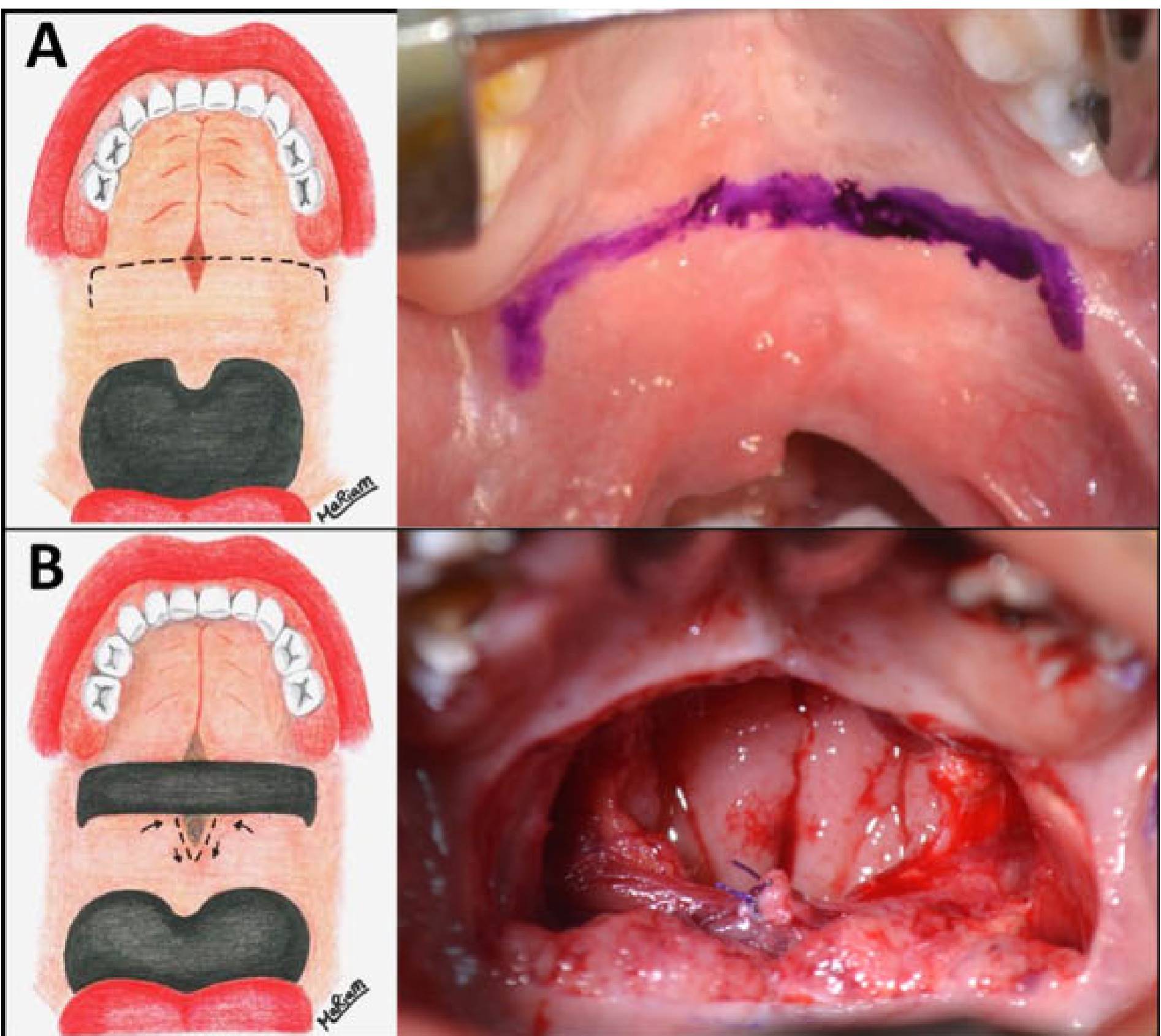Objectives: To assess the outcome of a modified buccinator flaps’ palatal lengthening combined with radical intravelar veloplasty
(Bs þ Re: IVVP) for the management of postpalatoplasty velopharyngeal incompetence and report the functional and structural
changes occurring in the palate.
Design: Prospective cohort study of consecutive cleft patients presenting with velopharyngeal incompetence and managed by
buccinator re-repair procedure. Blind assessment of randomized recordings of speech and evaluation of velar form and function
with nasoendoscopy and lateral videofluoroscopy were done. Patients’ demographic data were also collected.
Patients: Among 30 consecutive cases who had Bs þ Re: IVVP, 24 had adequate pre- and postoperative records of speech
outcome data.
Setting: Multidisciplinary cleft team in a tertiary referral center.
Results: There were significant improvements in hypernasality, nasal emission, facial grimace and weak consonants, and overall
intelligibility of speech. Endoscopy and lateral videofluoroscopy showed significant improvement in total and functional velar
length, closure ratio, velopharyngeal gap at closure, palatal thickness, palatal convexity, and mobility. Regarding the procedure
complications, no flap ischemia, fistula, or obstructive sleep apnea reported, but there were one cheek hematoma and two
minor oral mucosal dehiscence which healed spontaneously.
Conclusions: Buccinator re-repair (Bs þ Re: IVVP) has been shown to be an effective and safe procedure in treating difficult
postpalatoplasty velopharyngeal incompetence. It was also shown that it is still a physiological nonobstructive procedure with low
morbidity.

